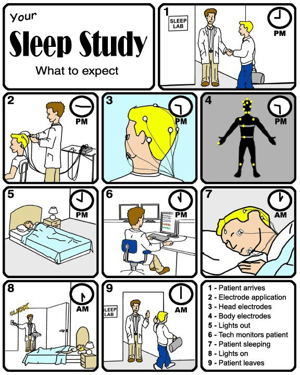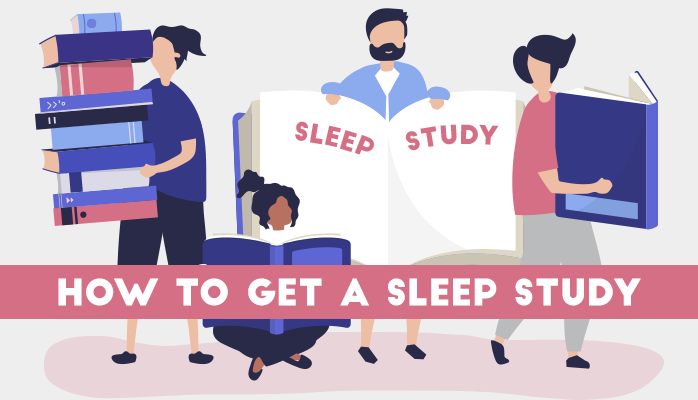Why Get a Sleep Study
It's easy to underestimate the importance of sleep. It affects every single area of your life: physical, emotional, and psychological well-being. Therefore, if you're not getting enough sleep, then you are negatively affecting several aspects of your life.
If you're aware of why you're not getting enough sleep (stress, late night activities, poor sleeping) then it may be easier to make changes to improve your sleep. However, if you're at a loss as to why you're unable to sleep well, one way to determine the issue is a sleep study. Keep reading to find out more about what sleep studies are, and how you can find one.
The point of a sleep study is to evaluate why you aren't sleeping very well. In this case, you or your doctor may suspect that there are medical reasons causing your lack of sleep, such as:
- Sleep apnea
- Insomnia
- Parasomnias (circadian rhythm disrupting conditions)
- Narcolepsy
- Restless leg syndrome
Sleep studies allow for the formal diagnosis of some of these sleep disorders. Fortunately, sleep studies are fairly non-invasive. Some people tend to worry that they won't be able to sleep while they are being watched and monitored by a sleep technician, however, this is rarely the case.
What is the Process for Getting a Sleep Study?
 The process for getting a sleep study is straightforward:
The process for getting a sleep study is straightforward:
- You either contact a sleep center or get a referral from your doctor (insurance often covers sleep studies)
- You may visit the sleep center and consult with sleep specialists to ask questions and go over the procedure
- You arrive at the sleep center before bed time
- The sleep study is conducted
- You leave in the morning
- Results are provided to your doctor usually within a week
After results are provided to your doctor, they will go over results with you and then work with you for appropriate sleep treatment.
How Does a Sleep Study Work?
A sleep study is fairly straightforward. There are several primary areas in which you are monitored while undergoing a sleep evaluation:
- Sleep equipment that monitors various aspects of your sleeping
- Observations by sleep specialists who monitor you while you sleep
- Biometric readings taken by sleep specialists
At the conclusion of your sleep study, sleep specialists will compile the results from the monitoring equipment, biometric readings, and observations, and send them to your doctor. Based on these results, your doctor may or may not give you a formal diagnosis.
How to Get a Sleep Study?
To get a sleep study, you should first contact your doctor. They can easily give you a referral to our sleep center.
After contacting us, you will simply determine the following:
- Time to tour our facility
- Time to conduct your sleep study.
After determining those two things, you will set up your appointments and arrive for each of them. You will be provided the necessary information prior to each appointment.
Common Sleep Study FAQ
What should I bring to a sleep study?
A good rule of thumb is to pretend like you are having an overnight stay at a spa. Bring things like:
- Comfy and appropriate sleeping attire
- Any medications you are required to take
- Other things that help you sleep well, such as a favorite pillow
- Any night time related items, such as face wash or toothbrush
- A spare change of clothes (we have showers at our facility)
How long does a sleep study last?
Sleep studies typically last from late evening to the morning time.
Does insurance cover sleep studies?
Usually, health insurance covers sleep studies.
What if I can't sleep?
This is rarely a problem, as there are sleep aids that we can use to assist you in sleeping in some cases.
If you think you may be in need of a sleep study, please click below to take the free online sleep test.


